Public broadcaster Prasar Bharati, which manages Doordarshan and Akashvani, is faced with a Hamletian choice after broadcast regulator TRAI’s recent recommendations on FreeDish: to have interoperability or not?
The Telecom Regulatory Authority of India (TRAI)’s recommendations on July 8, 2024 relating to Doordarshan FreeDish, amongst other issues, has once again given rise to the debate on the need for (or lack of it) interoperable set-top boxes. Still, interoperability is a favourite subject of the regulator as it has consistently stood by the requirement of STBs being interoperable.
Interestingly, the last comprehensive recommendations made by TRAI in 2020 are yet to be accepted by the Ministry of Information and Broadcasting even as the regulator has proposed another set of detailed rules.
In its latest recommendations a few days back, TRAI, while pointing out that Prasar Bharati may utilize indigenous technologies for CAS) and subscriber management for FreeDish, added that use of interoperable boxes would be beneficial for all.
“Prasar Bharati should adopt interoperable STBs for DD FreeDish to act as catalyst for transitioning the entire ecosystem from operator-based STBs to interoperable STBs to empower consumers’ choice. This will eliminate the need for changing STBs every time the service provider is changed. A roadmap for transition of DD FreeDish from non-addressable to addressable platform along with authorizing manufacturers and distributors by Prasar Bharati for sales and aftersales service of STBs, has been suggested to MIB,” TRAI stated, adding the government could also direct private DPOs to adopt and implement interoperable boxes.
The DTH licensing conditions and BIS specification mandated interoperability, though it has been overlooked and remains a mirage. The licensor, the regulator and the operators never showed keenness to implement this part of the licensing guidelines, though it has cost the nation nearly $400 million every year as boxes are changed and upgraded.
Not only such a churning adds to Planet Earth’s rising environmental problems in the form of e-waste, what’s galling is this could have been easily avoided if the industry seriously adopted and implemented the ‘interoperable’ clause, thus saving themselves too many costs.
It was a surprise that MIB cherry picked from the TRAI 2020 recommendations on interoperability and nudged BIS to mandate standards for digital tuners to be included in television sets from April 2025 — at least for all those sets that are manufactured in India.
What was the reason for pushing for inbuilt tuners in TV sets? Simple. So that consumers can watch DD FreeDish without a STB. I had earlier also said that this was an unfair advantage being granted to FreeDish. But, surprisingly, no DPO at that time raised concerns on the issue, though inbuilt tuners would help FreeDish eat into the subscriber base of the pay operators. I had raised the concerns in an earlier column too and they can be revisited at https://www.indianbroadcastingworld.com/guest-column-will-mandated-digital-tv-tuners-be-advantage-freedish/ .
Now, let’s talk of international experiences and trends. Europe has been on interoperable devices for decades and more than 600 million conditional access modules (CAMs) are in use. The trend is now moving to USB CI+2.0 CAM, which was recommended by TRAI way back in 2020.
While discussions were being held within the government on the formulation of the standards for TV satellite tuners, I had highlighted to people involved that TRAI recommendations may be accepted on the same, mandating USB CI+2.0 for TV sets.
The implementation of the USB CI+2.0 in television sets with digital tuners will pave the way for the industry where it will save huge costs in terms of provisioning and servicing of the STBs. Not to mention the savings (approximately $ 200 million) that can accrue from stopping import of kits from China for assembly here as STBs, which are then designated as Made in India.
It will be interesting to see if DD FreeDish takes a step forward towards being addressable and the government relooks the interoperability issue in the light of TRAI’s latest recommendations.
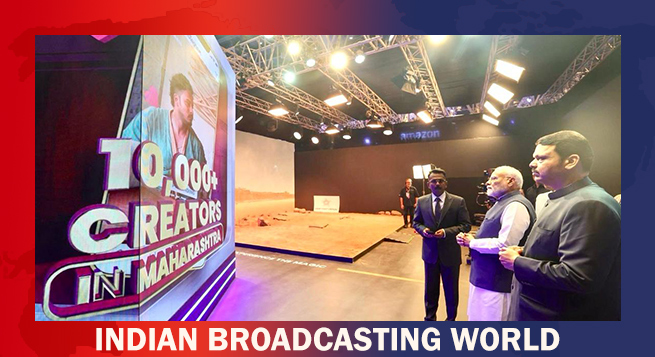 MIB to unveil M&E sector statistical handbook today at WAVES
MIB to unveil M&E sector statistical handbook today at WAVES 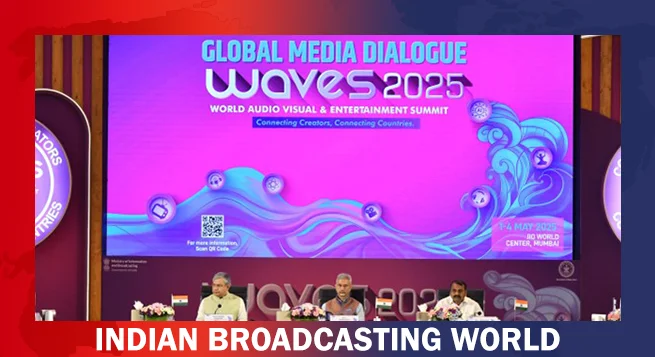 WAVES 2025: Media dialogue backs creativity, heritage & ethics in AI Era
WAVES 2025: Media dialogue backs creativity, heritage & ethics in AI Era 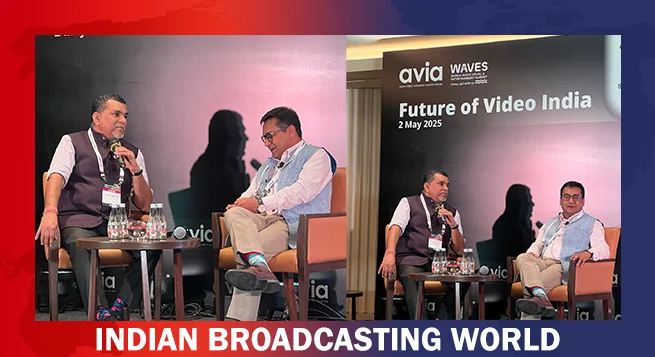 Pay TV leaders chart course for India’s linear TV in digital age
Pay TV leaders chart course for India’s linear TV in digital age 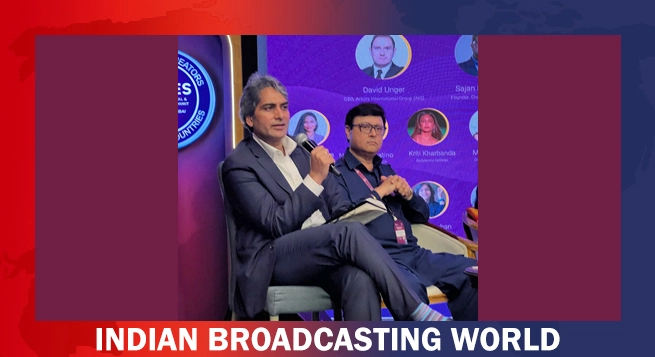 Sudhir Chaudhary announces new show for DD News, says “Good content still has a place” at WAVES 2025
Sudhir Chaudhary announces new show for DD News, says “Good content still has a place” at WAVES 2025 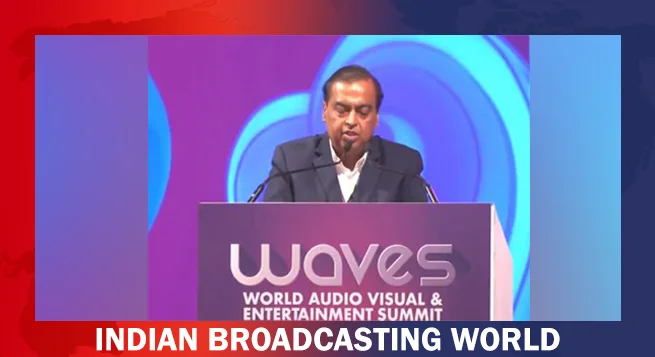 India can lead global entertainment revolution: Mukesh Ambani
India can lead global entertainment revolution: Mukesh Ambani 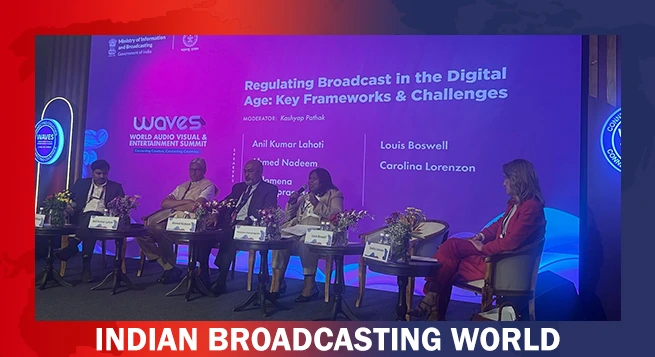 TRAI chief not in favour of separate rules for OTT, legacy b’casters
TRAI chief not in favour of separate rules for OTT, legacy b’casters 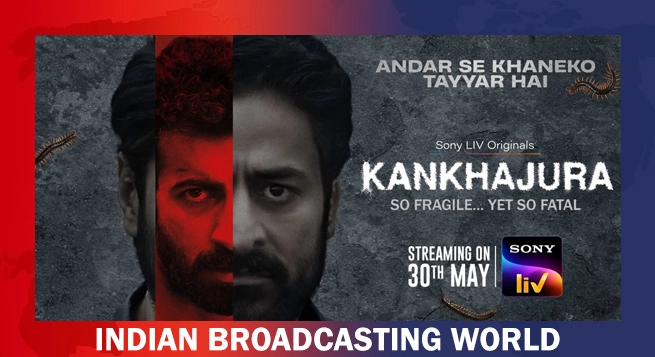 ‘KanKhajura’ start streaming on Sony LIV from May 30
‘KanKhajura’ start streaming on Sony LIV from May 30 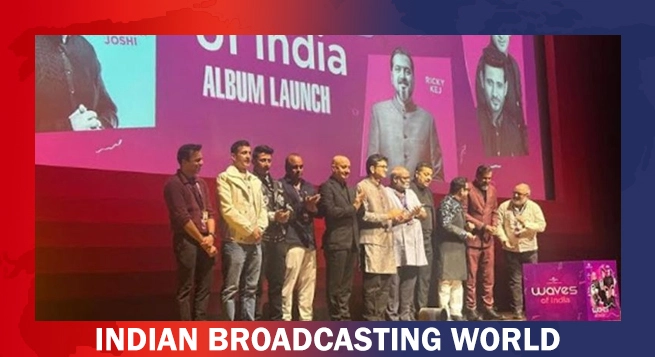 Koyal.AI debuts at WAVES 2025, set to revolutionise music videos with GenAI
Koyal.AI debuts at WAVES 2025, set to revolutionise music videos with GenAI 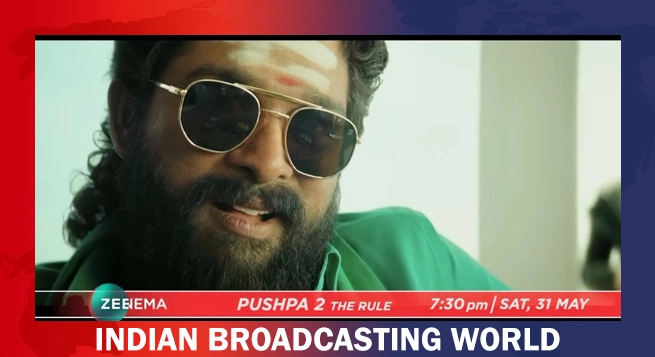 Zee Cinema to premiere ‘Pushpa 2: The Rule’ on May 31
Zee Cinema to premiere ‘Pushpa 2: The Rule’ on May 31 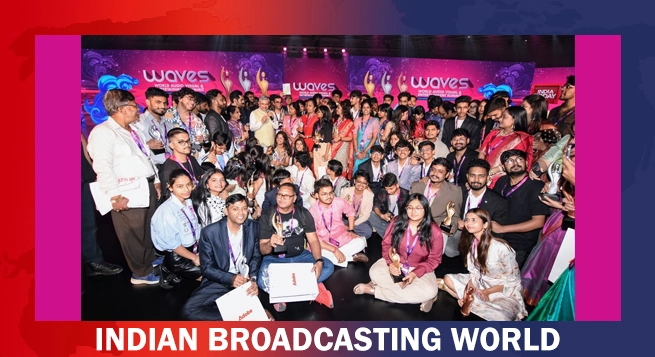 ‘Create in India Challenge’ S1 honours global talent at WAVES
‘Create in India Challenge’ S1 honours global talent at WAVES 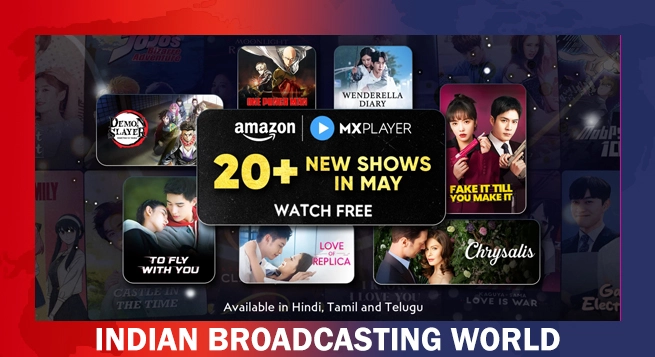 Amazon MX Player adds 20+ dubbed international titles
Amazon MX Player adds 20+ dubbed international titles 








